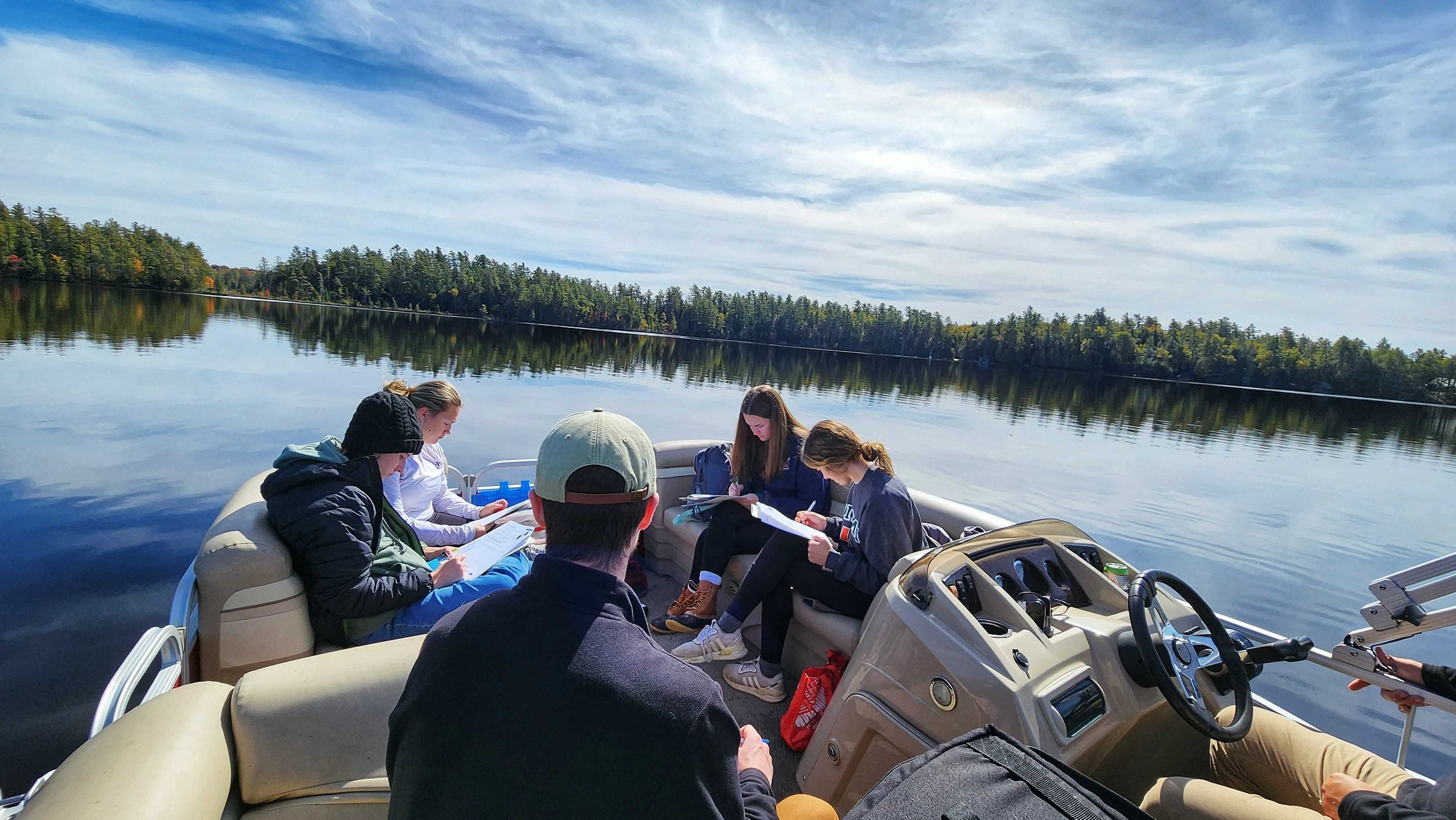
Environmental Education
Like learning another language, the process of building environmental awareness to change behavior is most effectively begun when people are young. It was with this understanding, combined with the need to reach a broader audience, that we offer a variety of education programs. Our programs are designed to engage participants in a hands-on watershed education experience. Children and adults that participate in our environmental education programs walk away with a deeper, more meaningful understanding for how complex, important, and threatened our watersheds are.
Our core programming is listed below. If your group is interested in our staff leading a presentation, workshop, or program, please visit our Public Speaking and Engagement page.
Aquatic Invaders Game
Aquatic Invaders is a game created by Watershed Science Communication Fellow Stephanie Tyski. Designed to educate players about the real-world consequences of aquatic invasive species, Aquatic Invaders combines entertainment with environmental education. Players will experience the challenges faced by these harmful invaders while gaining insights into the crucial work of the AWI in preserving the unique ecosystems of the Adirondack Park.
Aquatic Invaders is currently not available to play on some Apple devices. The developers are working to fix it soon.
Spread Prevention Workshops
The Adirondack Watershed Institute's Aquatic Invasive Species (AIS) spread prevention workshops are designed to increase the understanding on the importance of preventing the spread of aquatic invasive species through discussion and hands-on activities promoting clean, drain, dry practices.
Included in the training program are three units: Public Engagement, Aquatic Invasive Species Identification, and Watercraft Inspection.
Water Quality Programs
Our team partners with high school educators to enrich science education by connecting real-world field experiences with classroom learning. Whether it's bringing the classroom outdoors or bringing the wonders of our watersheds indoors, we strive to deepen students' understanding of ecological processes in local watersheds. Through our programs, students explore the threats facing lakes and ponds and discover the practical steps that can be taken to preserve them in the future.
Topics covered can include the following: watershed processes, aquatic plants and fisheries, limnology, among others. Contact us to learn more about the possibilities.
Youth for Climate and Water Action
Our team partnered with the Finger Lakes Institute (FLI) at Hobart William Smith Colleges to create curriculum focused on teaching climate and water topics. This project is supported through funding from the National Oceanic and Atmospheric Administration (NOAA) and the Lake Champlain Basin Program (LCBP). Lessons can be found by visiting the link below.
Water Quality in Our Watershed
The Water Quality in Our Watershed Program is designed for Grade Levels 3-7. This program uses AWI’s interactive watershed model and is designed to be hands-on, informative, and engaging. The program explores the concept of a watershed by discussing challenges in our watersheds and offers solutions to these challenges. Often this program can be combined and delivered alongside the Junior Watershed Steward Program.
Mirror Lake Watershed Walk
Mirror Lake has been routinely monitored by AWI and the Ausable River Association for many years. It was discovered that Mirror Lake has higher chloride and sodium levels that 97% of other Adirondack lakes. The Mirror Lake Watershed Walk was designed to offer a virtual educational experience for residents and visitors. Participants learn about the watershed and measures taken to improve and protect water quality in the Mirror Lake watershed by taking an approximately 1 mile walk in the watershed.
Wool and Water: Data Arts Education
Wool and Water is a data art project that blends fiber art with scientific data to create visual representations of changing water quality conditions in the Adirondacks and Lake Champlain Basin. Our team has created lesson plans that integrate watershed education with the fiber arts. Students learn about their local lakes, the challenges these waterbodies face, and create fiber arts pieces that represent changing environmental conditions.







